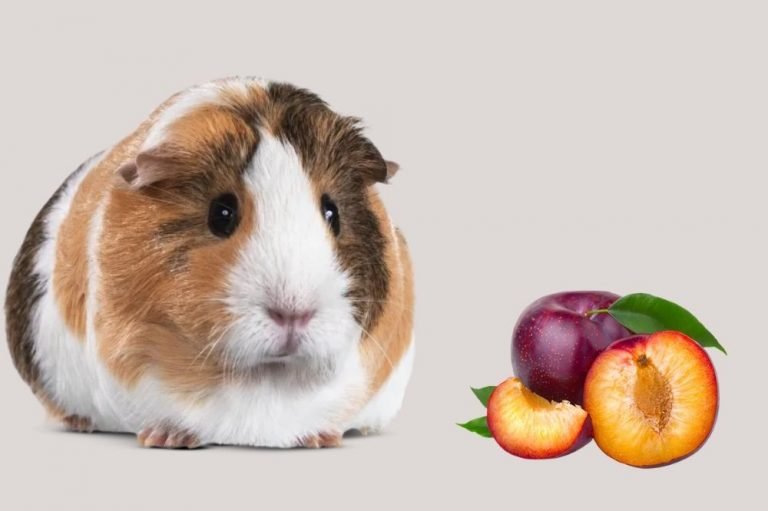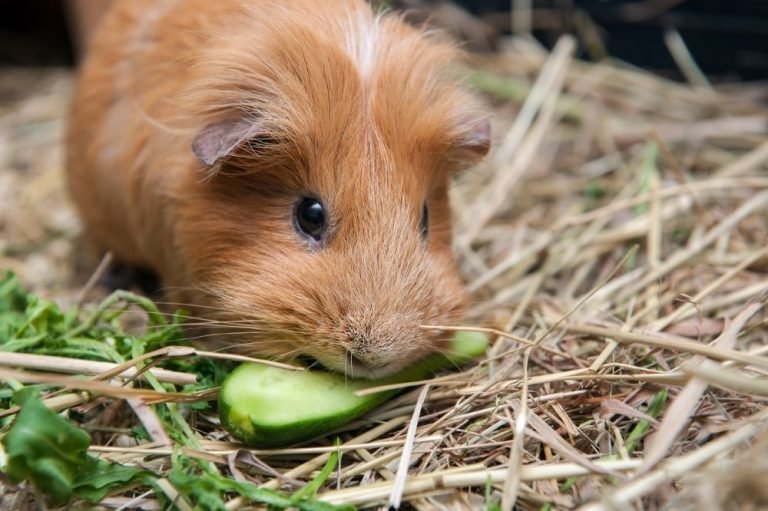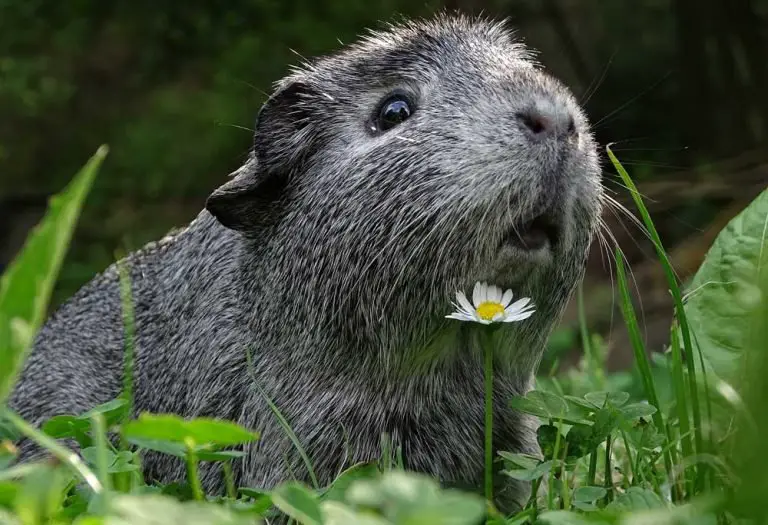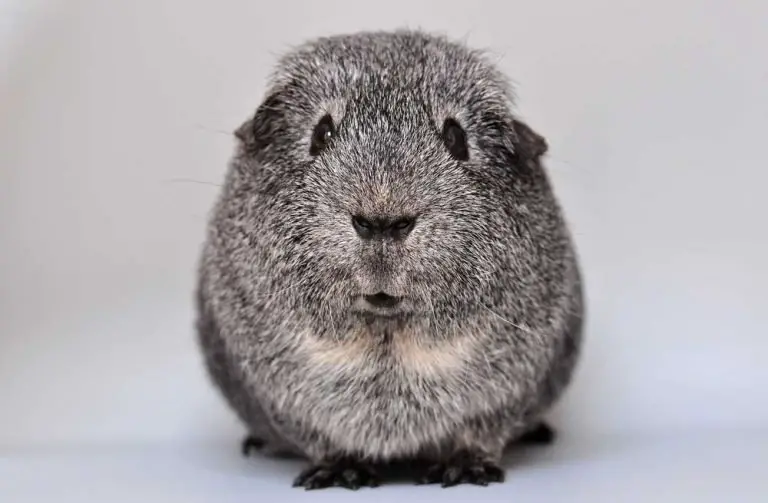Can Guinea Pigs Eat Bell Peppers?
Even though they are regarded as vegetables, bell peppers are scientifically classified as fruits and are grouped in the Solanaceae family.
They come in different colors and are also very nutritious to both humans and animals that can eat them.
As always, you have to be extra careful before feeding your guinea pig a new food, and bell peppers are not an exception.
It’s only natural that you always want to share everything that you eat with your guinea pig. Nonetheless, it is not advisable to do so before looking into the type of food in question.
The fact that you are reading this means you care about your furry friend and wouldn’t want anything bad to happen to him/her as a result of eating the wrong food.
To help you out in deciding whether to feed your guinea pig bell peppers or not, we are going to highlight some of the most important points that will guide you on what you should do when it comes to guinea pigs and bell peppers.
Can Guinea Pigs Eat Bell Peppers?
Guinea pigs can definitely eat bell peppers because they are super nutritious and equally crunchy. In fact, you can feed your guinea pig green bell peppers on a daily basis without causing any harm to your pet. Other types of bell peppers, especially the red colored ones should be served in moderation.
The reason why you should feed your guinea pig red, yellow and orange bell peppers in minimal amounts is that they contain more sugar compared to the green ones.
Guinea pigs don’t thrive on a sugar-filled diet, so you should only serve your cavy low-sugar foods.
If served in moderation, red bell peppers can provide your furry friend with tons of health benefits.
Besides, they are the most nutritious compared to the other three types because they take the longest time on the farm.
Still, you should only stick to green bell peppers if you are looking to serve your pet this fruit daily.
Compared to the red and orange bell pepper, yellow bell pepper is not as bad because it has low amounts of sugar and an abundance of vitamin C.
As such, it is okay to feed your cavy yellow or green bell peppers on a regular basis.
However, ensure that you serve only a small portion since bell peppers should not be used as a staple food for guinea pigs.
What will my Guinea Pig gain from Eating Bell Peppers?
Bell peppers are rich in potent antioxidants that prevent cellular damage in cavies.
In addition to this, they contain vitamin A, a highly essential fat-soluble nutrient that aids in the growth of body tissues and organs.
Aside from that, vitamin A also strengthens the immune system, thus making your guinea pig more resilient to disease-causing microbes.
Also, bell peppers contain a lot of dietary fiber, which can aid in digestion. Green bell peppers are low in calories, so they can help your furry friend stay in good shape.
Apart from vitamins, bell peppers also contain essential mineral compounds that will benefit your cavy.
How Often Should a Guinea Pig Eat Bell Peppers?
This depends on the type of bell pepper that you want to feed your guinea pig. Like we said earlier, green bell peppers pose no threat to your pet’s health even when served daily.
When it comes to the other types of bell pepper, you can serve them to your cavy twice or thrice every week.
The portions should, however, be small for all types of bell peppers, including the green ones. This is because bell peppers should only be served to guinea pigs as a treat.
Each guinea pig should only eat a small slice or two in each serving session to avoid possible health complications.
What will happen to my Guinea Pig if he/she eats too much Bell Pepper?
Bell peppers are safe and nutritious for guinea pigs, but they can still cause problems when eaten in large amounts at once.
The worst that can happen is that your guinea pig may suffer from indigestion, an upset stomach, and diarrhea.
All these will go away with time once the food has left the guinea pig’s digestive system. However, if diarrhea persists, you should consider taking your pet to the vet.
How Should I prepare Bell Pepper for My Guinea Pig?
When serving vegetables and fruits to guinea pigs, you have to ensure that the food is well prepared before presenting it to your pet.
Preparation is important because you will be able to remove the parts that your guinea pig cannot eat, but most importantly, it allows you to remove pesticides and dirt from the food.
With that said, the first thing that you should do is to wash the bell peppers thoroughly, after which you can slice them up into smaller pieces for your cavies.
You may or may not remove the seeds. Bell pepper seeds are not only small but are also soft, so they cannot hurt your guinea pig.
The stalks, on the other hand, must be removed because they are tough, so your cavy may have a difficult time eating them.
Can Guinea Pigs Eat Bell Pepper Leaves?
You should not give your cavy bell pepper leaves because they contain alkaloids that can be potentially toxic to guinea pigs.
Plus, bell peppers are grouped in the Solanaceae category, meaning that they are nightshade plants. Nightshades are known to contain poisons that can make cavies ill.
As such, the leaves, stem, and any other part, except the fruit should not be fed to guinea pigs.
Final Thoughts
When feeding bell peppers to your guinea pigs, ensure that you serve them raw because cavies like their crunchy texture. Plus, cooked food is not recommended for piggies.
If you are planning on incorporating bell peppers into your guinea pigs diet, you should go for the green ones since they are not as sugary compared to the other options.
Also, ensure that you wash the bell peppers properly for the safety of your guinea pig.
- Can Guinea Pigs Eat Lawn Grass? Find out now!
- Can Guinea Pigs Eat Wet Grass? Find out now!
- Can Guinea Pigs Eat Weeds? Explained
- Can Guinea Pigs Eat Watermelon? (Benefits & Risks)
- Can Guinea Pigs Eat Strawberries? [Feeding Guide!]






![Can Guinea Pigs Eat Corn? [Feeding Guide!]](https://atractivopets.com/wp-content/uploads/2020/12/Can-Guinea-Pigs-Eat-Corn-768x511.jpg)
![Do Guinea Pigs Poop A Lot? [What You Should Do Now!]](https://atractivopets.com/wp-content/uploads/2020/09/Guinea-Pigs-1-768x599.jpg)